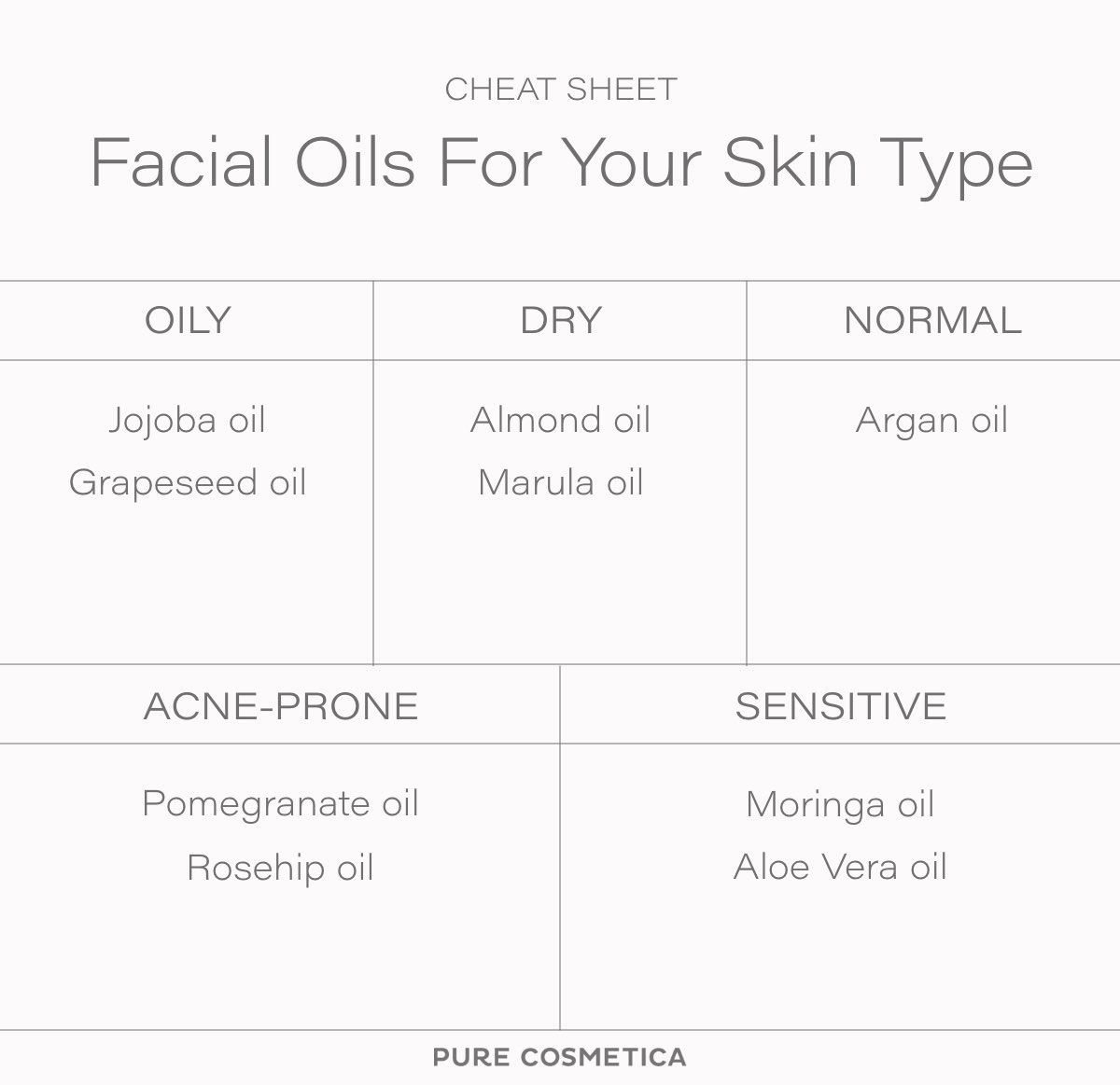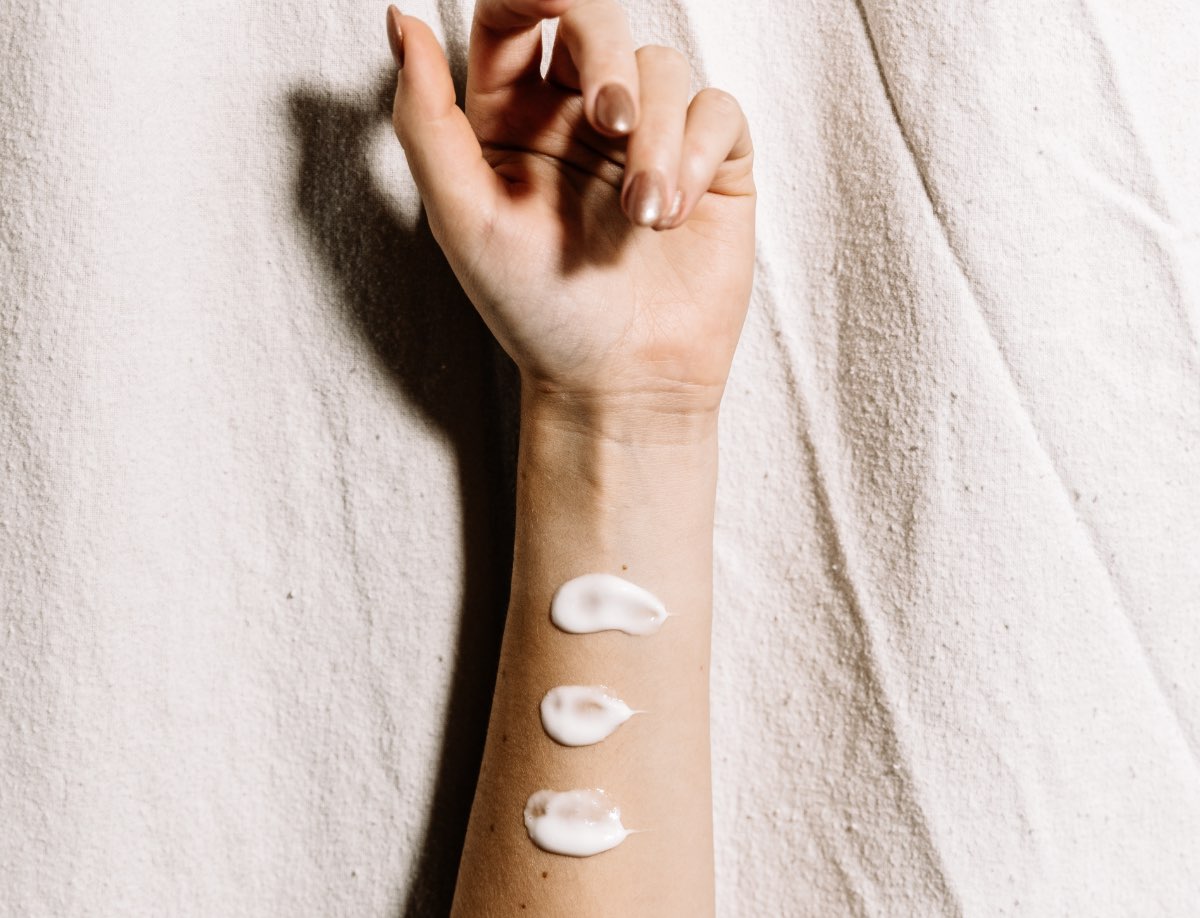Oils vs Moisturisers: Which is Better for your Skin?
Posted by Pure Cosmetica on 7th Jul 2021
Facial Oils
For many, especially those with oily or acne-prone skin, the thought of putting oil onto your skin is scary as it is perceived to be the cause of excess oil and breakouts. However this is far from the case and it is most likely that a facial oil is a beneficial step that is missing from your skincare routine.
Often, those with oily skin will opt for products designed combat oil production with their oil-fighting ingredients, however the skin produces oil to maintain balance. Without oil the skin can become overly dry, leading to the formation of fine lines, wrinkles and breakouts. When the natural oils is stripped (this can occur from oil-reducing products or a strong foaming cleanser) the body then produces more oil to compensate and replenish the skin. This imbalance and overproduction can lead to pimples and breakouts.
A facial oil will moisturise and replenish the skins barrier and can also help balance the skin's sebum production. They are also loaded with vitamins and minerals, and contain antibacterial and anti-inflammatory properties.
Face oils according to your skin type
Just like any other product, you can find one that targets your skins specific needs. These are some examples of oils best for different skin types and conditions.
Oily Skin
Jojoba oil is an incredibly lightweight and breathable ingredient, but also breaks down and dissolves sebum, helping to control shine. You'll find Jojoba oil in our Intense-A and Advanced-C face oils. Grapeseed oil is a natural astringent and has a drying effect, helping to mattify the skin.
Dry Skin
Almond oil is intensely hydrating, simple and gentle enough for anyone with eczema, dermatitis or really dry skin. It is also high in Vitamin A, making it a line-smoothing and zit-fighting. Our Face Cleanser and Soothe Face Scrub contains this fantastic oil.
Marula oil manages to absorb into the skin within minutes, yet is still rich enough to moisturise and calm dry skin all day long thanks to the heavy dose of fatty acids. This makes it the perfect ingredient for our Advanced-C face oil.
Acne-Prone Skin
Pomegranate oil is not only naturally antibacterial and anti-inflammatory (this helps fight bacteria that causes zits, whilst calming the rest of the skin) but is also incredibly lightweight. You will find Pomegranate oil in our Intense-A face oil .
Rosehip oil deeply hydrates the skin without suffocating the pores and contains fatty acids that also fade acne scars and reduce redness.
Normal Skin
Argan oil is rich, soothing and sinks into the skin quickly. It is high in Vitamin E, an antioxidant that helps prevent skin damage, dark spots and fine lines by blocking environmental damage. Argan oil is a core ingredient in our Face Oil range .
Retinol oil is not exactly a type of oil, however if you’re after benefits of antiaging, skin brightening, reduced bumps and breakouts, and hydrate the skin, an oil spiked with retinol is perfect.
Sensitive Skin
Moringa oil is packed with antioxidants, fatty acids and anti-inflammatories. It is also lightweight, yet still moisturising enough for dry skin. This oil is perfect for layering with makeup.
Aloe Vera oil is also filled with anti-inflammatories and antioxidants, but had the added benefit of being a natural antibacterial and astringent, making it a powerhouse for sensitive skin that is also acne-prone. You will find Aloe Vera in all of our Face & Body Oil range and in our Soothe Face Scrub.

Moisturisers
Moisturisers are completely different to oils, and we do in fact need both. They are a combination of water and oil, and other active ingredients that help these two mix. They can contain up to 90% water and the key function of this product is to hydrate the skin.
Moisturisers often contain ingredients such as hyaluronic acid, which bonds water molecules from the environment to it, allowing the skin to retain moisture. Just as on any surface, moisture evaporates from the skin and therefore it is important to lock it in.

Which do you apply first, oils or moisturiser?
As always, the rule of thumb is to apply your skincare from thinnest to thickest. Therefore, depending on the consistency of your moisturiser and the oil you use will determine this. Most often however, oil will be the heaviest and is able to penetrate a moisturiser, and not the other way round. If you’re unsure – opt for oil over moisturiser!
Shop natural skincare at purecosmetica.com
 AUD
AUD  US Dollar
US Dollar

